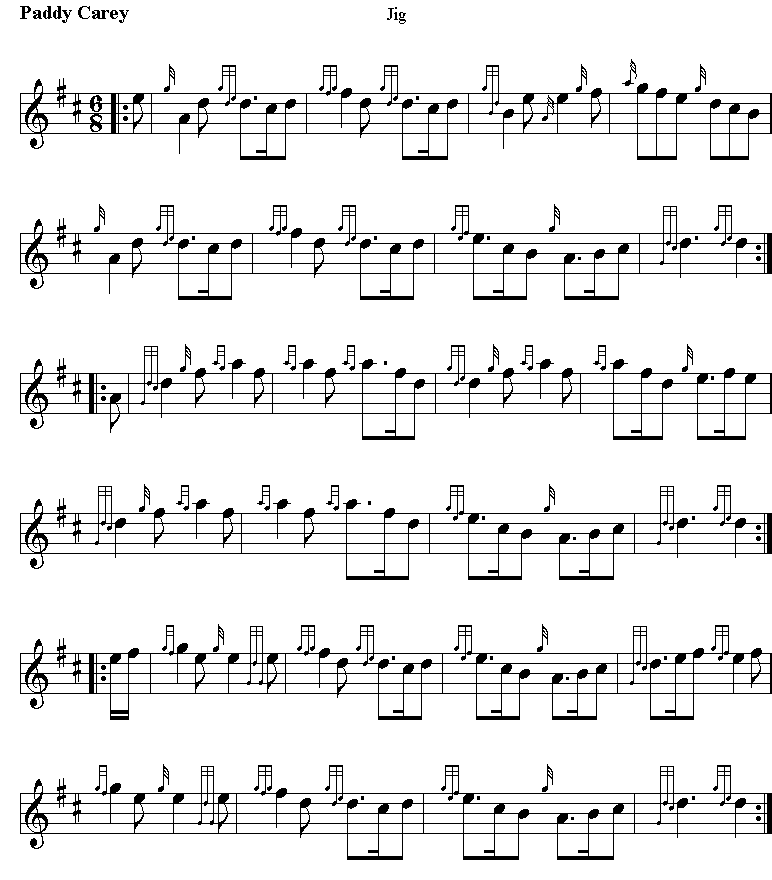|
Also known as ‘Paddy Carey’s Fortune’, ‘Paddy Keary’,
and ‘Paddy Carey’s’, the song was composed for the
theatre in the late 18th century and popular for the
next 100 years. It still has cachet as a dance tune. The
Lester Levy Sheet Music Collection has an undated set of
the song, published by C. Taws, Philadelphia, entitled
"Paddy Carey's Fortune or Irish Promotion, A
favourite Comic Song." Words in that publication are
credited to a “Mr. Cherry,” with music by “J. Whitaker.”
The Mr. Cherry probably refers to and Irish actor named
Andrew Cherry, who was popular on the London stage of
the late 18th-early 19th centuries. Cherry was also a
playwright and penned the words to the song “Bay of
Biscay.” The melody entered tradition early: a version
is contained in the 1780 music manuscript of Scottish
musician John Fife (a microfilm copy of which is in the
National Library of Canada). A broadside version of the
ballad begins:
‘Twas at the town of neat Clogheen,
That Sergeant Snap met Paddy Carey;
A cleaner boy was never seen,
Brisk as a bee, light as a fairy.
His brawny shoulders four foot square,
His cheeks like thumping red potatoes;
His legs would make a chairman stare,
And Pat was love by all the ladies:
Old and young, grave and sad,
Deaf and dumb, dull and mad,
Waddling, twadling, limping, squinting,
Light, brisk and airy.
The tune is sometimes paired in a medley with “Morgan
Rattler” in southern England sessions. One of the oddest
appearances of the tune is on the barrel organ from the
polar expedition of Admiral Parry of 1819. In place of a
ship’s fiddler (common in those days), Parry introduced
a barrel organ on board ship to provide entertainment
and a vehicle to which the men could exercise (i.e. by
dancing). “Paddy Carey” was one of eight tunes on barrel
no. 5, unidentified on the recording.

|



